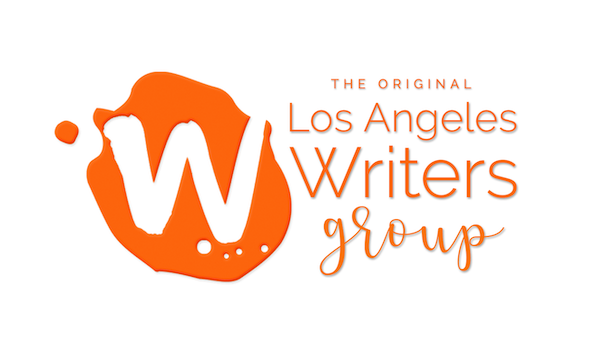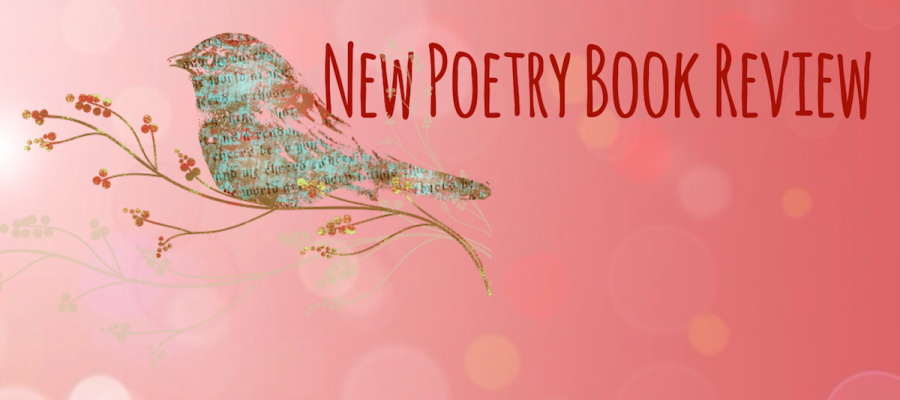.
Loss Creates Abundance in Holly Prado’s Oh Salt / Oh, Desiring Hand
Poetry Book Review by Sanora Bartels
Holly Prado’s latest book of poetry Oh, Salt / Oh, Desiring Hand from Cahuenga Press takes its title from Part Two of the book and a line of her poem Herbs Oh Ancient Oh Tomorrow, a reminder of the forever and yet ephemeral nature of that which is the very thread of this book – this body we call life or more exact, this life we experience as a body. Not just any life though – not a life spent crimping and saving money for an imagined comfortable retirement, not a life of compromise – but rather, a life of daily choosing art, and, even then, it is perhaps not so much a choice as an imperative, and with it comes a trade-off – if this book is the result of that trade, then I thank the poet for her generosity.
I have praised Prado’s (and her husband Harry Northup’s) work in the past for its easy intimacy, its ability to invite me into her world with her husband, cats and neighbors. I also praised her previous book from one to the next for creating room at the fire for shared experience. This book takes both skill sets to new levels.
One of my favorite poems actually appears on the dedication page – Husband Murmuring is an ode to Northup and for the poetry they continue to share:
I hear “solar” I hear “arm” I hear my husband who’s
sitting on the bed in the bedroom reading his poetry
out loud to himself to all of us I hear poetry not as
what our culture hears as incomprehensible I hear
Harry’s soft voice reading himself how lucky we are
This soft reminder of what we hold, what we have held since a childhood of sounding out vowels is sustained throughout each section of the first half of this book. Having said that, I have to acknowledge that this is not a sentimental look back to halcyon days. Prado’s verse looks unflinchingly at self and aging and its inevitable losses. In the first section of the book My Career (2008-2009) I am struck by the very first poem – Single-string Lyre, in it we meet her young neighbor:
… She’s been away all night –
her lover’s house – and so
the world does lift itself again
in flight and sex; instinct making
its way home, unlocking its familiar door.
It is the recognition of spring on a chilly autumn day; autumn, the poet’s favorite season and with it come reminders of winter.
Here are our ghosts:
Their strange winds strike our throats, and we begin, ourselves, the drone, the hum.
Loss makes its never-ending list: January’s fatal accident, February’s
deadly stroke: this past week, a writer’s suicide; a famous actor’s cancer.
“We’re next,” my husband says.
I, as a reader, am snapped back into a physical world fraught with the ever-present anxiety, but Prado doesn’t allow the harsh practical reality to dictate her language or her amused assessment of a life well-lived, which is expressed in a metaphor of a favorite gray sweater: “cherished for its past,/for the bargain that it was” – like it, she feels “the frayed and tired self” but is not willing to feel regret:
I can’t be sorry; what’s beautiful becomes a secret,
not the bent-over woman seen when my young neighbor
says hello and talks about her lettuce plants. Her skin:
refreshment, bloom. I can’t tell her I have reached
the richest season yet. Pale eyes and faded voice,
lines webbing my broad face. The visible is exactly what it is
but not the truth.
Here, I have to mention the long lines in the early section of this book – some of them nearly touching the edge of the page – giving a sense of “not yet” – wait, there’s more to say here – more I know, have always known.
In Summer Mariposa (2010-2011), the second section of the book, Prado explains the title – Mariposa is the street she and her husband have called home for over 30 years and means butterfly in Spanish. This section is homage to transformation, and for me, a nod to the truth that no transformation comes without cost – again, without loss. The form of the poetry reflects the theme with its short lines punctuated with gaping spaces – holes where something, someone, used to be. From Coastline:
here this minute my husband
really really alive talking to me
about theater:
“you just devote your whole life to it” –
about family money what are we
hungry for he wants to know he says
compassion which is grief thrown
at absence
And in the end, after forty years she knows this:
loss prevails maybe bringing eventually
sweetness a leisurely dessert
that fills the mouth a friendship
melting absorbed into the body
not tumor not cancer not stroke
not heart gone kablooey not tainted
blood not suicide
but the delicious end of a meal
relished unmourned.
We end grateful for summer fruit and also “for what we don’t have.” And more than that, hungry for some small abundance to fill the loss as in Earning a Living:
…. I have wanted a fig tree ever since Sarkis
elderly Armenian neighbor planted his tree I saw
how fast it grew how abundant confident joyful
figs hung on their huge-leaved branches
the lesson of age is this: often, more is denied
than granted….
The redemption is, of course, the nod to abundance, the neighbor enjoining her to “pick figs” and a private enjoyment in treating oneself by instead picking them at Trader Joe’s to take them home – a feeling that there is enough; and perhaps the gaps hold enough room for a fig tree as the poem ends “come, figs, grow here.”
The poems in the third section titled Visit (2011) are lush and long and spread out on the page not unlike the geography of Los Angeles, and, in a way, I feel are uniquely expressive of a westerner’s point of view (I’m including the poet’s Midwestern roots in that assessment – because we are almost all transplants here.) There is an easy humor that is not without a sharp eye; a look at the wide world around us, then communicated with the shy, introspective, self-depreciating, ever-gentle voice. The first poem in this section makes me proud of Los Angeles writers (and L.A. poets in particular).
Sonnets
never swoop into my nervous shoulder
with any kind of élan excitement joie de something-or-other
never thrill the brilliant turquoise newly ironed cheap but
pleasant long blouse I want to wear this week when temperatures
rise this is Southern California who can make any sense of sonnets
in a climate where bougainvillea spreads its unimaginable but there they are
fuchsia blossoms across whole houses we like reaching here reaching
for the planet mercury shape shifter alchemical magician planet god force
who stirs the air spreads pollen spreads coyotes into city driveways spews
disaster and rescue from disaster into our lives three four seventy times a day
nothing cures anxiety like disaster which is why sonnets can’t stand Los Angeles
The poems in this section are simply brilliant. I would quote each one but instead invite you to buy the volume yourself to read Photo: Poet with Imagined Animal, If You Read Books You’ll Be Less Depressed Than If You Listen To A Lot Of Loud Music and Admiration – to name a few – each one a musing on writing, on art and its artists, on what it is to choose this life and look up one day content to have landed exactly where one has ended up.
Which brings us to the title section of the book Oh, Salt / Oh, Desiring Hand (2012). And this “Part Two”, is divided into three sections as well, One: Presence, Two: Companions and finally, Three: Wet. Sections One and Two are the Prado we found in from one to the next, with their short, expressive pieces, each one an exercise in expansive brevity. How does she say so much in so few words? As in Under:
whose Mother do we ever have?
anything with breasts even old
stubborn years give milk
we’ll live for you furred elegance
we’ll be your hunger
This first section evolves from our needy singular nature toward the human, toward Companions, toward that which becomes aware of other, here is that shared experience, that exquisite exchange, in Herbs Oh Ancient Oh Tomorrow:
we sing we kiss joy as we lick
the steady pulse in our thick-veined wrists
oh salt oh desiring hand
And finally, we come to Wet, title taken from the last poem of the book and the theme plays throughout the section – what, finally, is our essence? Salt, yes, and water, mostly water as in Wakes Up:
evil makes hot weather hotter “god and goddess bless us
and be blessed” to which I often add
“may Divine Love pour through us all”
Divine Love even arriving as sweat
running along my achy neck is fine with me
We have an unquenchable thirst for love, for a life of meaning and, for some, a life of art. Thank you, Holly Prado, for choosing to live your art. Thank you for being a poet in Los Angeles, where poetry is sometimes buried by the lead of disaster and untimely deaths. Thank you for poetry that allows us to find the common, the connection, the pattern that unifies us. Finally, I’ll let Prado end this review because it sums up how I feel when I ingest brilliant, incisive, expansive poetry – her poetry. This from Diamond Shaped Pattern:
the basket is a gift an unexpected “here, take it”
which makes me believe all is not lost there might
be hope on this shattered planet
oh Sacred Luck save us from our greed
our grim envy the hate we heap
on names we can’t pronounce
moon and lunch and baskets stitched tight they can
support water say any of this in your own language
it’s always sky and food and craft that hold freshness
ready for us when we show up together
in the afterlife weaving each other’s thoughts


You must be logged in to post a comment Login